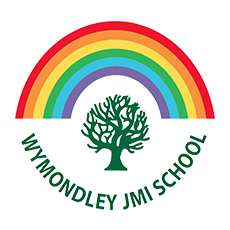Curriculum
At Wymondley we believe in a broad and balanced curriculum, where the National Curriculum builds on a solid Early Years base, in resource rich and stimulating classroom and whole school environments that are supported with specialist provision for Music and PE. Our class teachers provide an inclusive curriculum that is differentiated for those with Special Educational Needs or Disabilities (SEND). We have high expectations for all pupils and are committed to ensuring that our curriculum is rooted in equality for all. We promote a positive, challenging, and enjoyable learning experience for all children and maintain a belief that learning is lifelong. We believe that the skills and attitudes that are instilled in the early stages of a child’s life should stand them in good stead for whatever the future will bring.
Cross-curricular links are a great way to reinforce learning and help our children to apply new skills to a range of contexts and you will find ideas for doing this listed in each subject area. However, we also recognise that there is a balance to be found between cross-curricular and subject-specific teaching - for instance, a Year 5/6 Design Technology project could tie in brilliantly with a history topic on World War 2, but teachers would need to ensure that the DT time is still focussed on skills of developing prototypes, using diagrams to communicate ideas and constructing, testing and evaluating their ‘product’. As a result, from Year 1 on, learning should always be organised by subject.
We believe that practical and first-hand experiences are vital for our children. They bring learning to life and make it meaningful. This is particularly true in our local context, where many of our children will not otherwise have access to the experiences which others might take for granted (such as visits to farms, zoos, the theatre or London landmarks). As a result, for each subject you will find a list of key experiences which every child should have on their journey through our school. We also offer a range of extracurricular activities which give opportunity, while supporting and motivating children to achieve their full potential in areas such as sport, the arts, computing, and outdoor learning.
Skills and Knowledge Progression Documents
For teachers they provide a clear structure to progression in teaching and learning, so that all staff understand how what is being taught now both builds on what came before and feeds into what comes next. They make planning easier and more structured, both in the short and long term, without hindering creativity and the ability of individual teachers to follow the interests of their children and they maximise the potential for cross–curricular links, without letting this get in the way of the teaching of subject-specific skills and knowledge.
For subject leaders they provide the opportunity in writing and refining these progressions to take ownership of their subject and shape a curriculum that matches the needs and context of our school. They lay out a clear progression in teaching and learning, so that leaders know what they are looking for, what they expect to see and how their subject develops through the school and they develop a long-term provision plan that includes all the experiences and opportunities identified.
They can also be incredibly useful for parents and carers, by letting them know what children are (or are going to be) taught, so that parents and carers can use this information to support learning at home. We also hope that it gives parents and carers a better understanding of how our teaching and learning is structured and what we believe ‘age related’ skills and knowledge should look like in each year group.
Any policies mentioned should be read alongside further school policies. For information on our Early Years, please visit the Puffins class page.
If you would like further information on the curriculum we teach, please contact the school directly.
